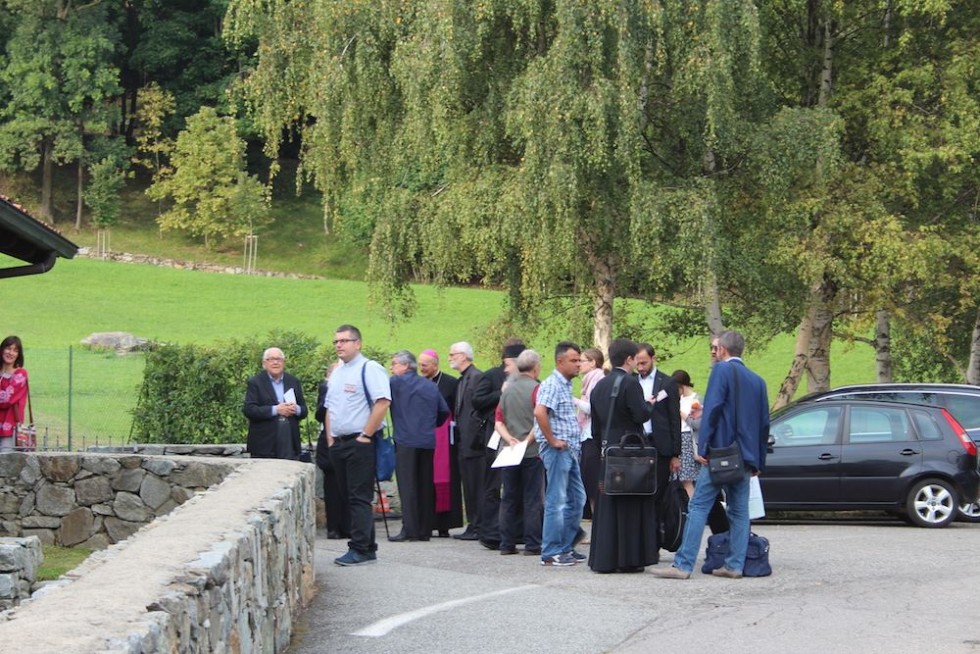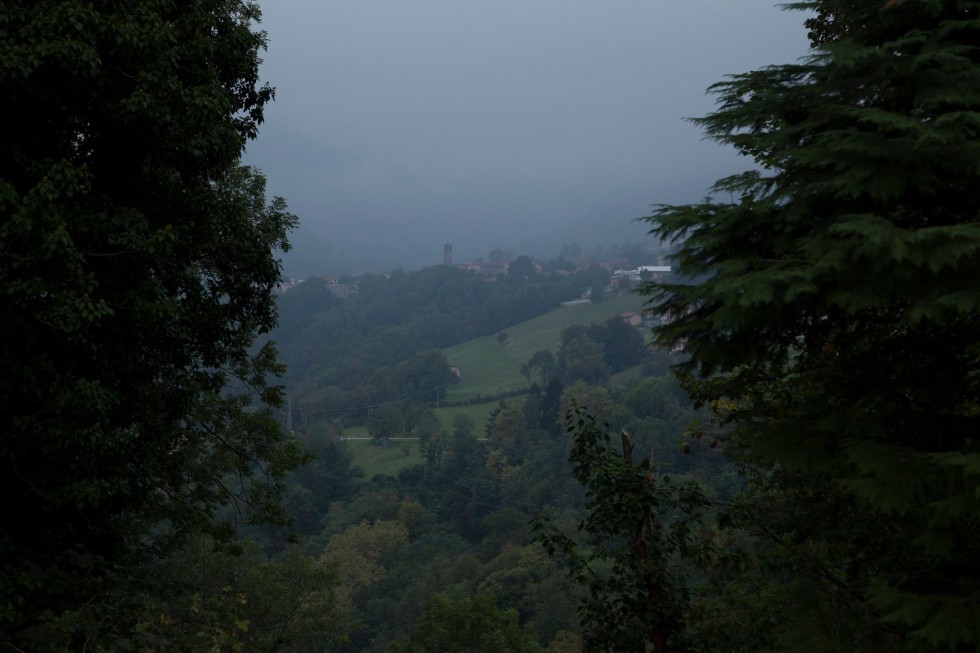The 25th Annual Theological Symposium on Orthodox Spirituality takes place in Bose, Italy
The 25th Annual International Ecumenical Symposium on Orthodox Spirituality, in the monastery-village of Bose, Italy, brought together 250 people from more than 20 countries across the world. This year’s theme was “The Gift of Hospitality.”
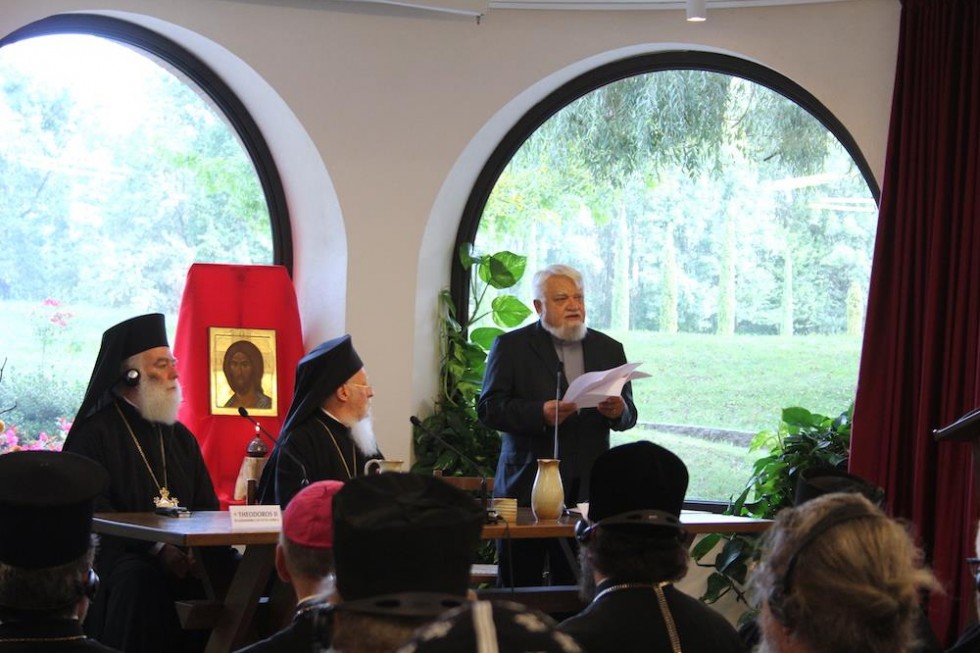
“Guests are people who carry within themselves a question. They ask us about love,” said Enzo Bianchi, the founder of the Bose community, as he opened the conference. “And hospitality is a gift that we receive within ourselves.”
In his communique to conference participants, Pope Francis emphasized that the monastery at Bose is solving the question of unity by gathering everyone into a single path. He also noted that it goes without saying that hospitality is a gift, as we are all just “visitors here on earth”.
In his message to the symposium, which was read by Bishop Anthony of Zvenigorod, Patriarch Kirill of Moscow and all Russia pointed out that Bose itself is an excellent example of hospitality.
The head pastors of the Romanian and Antiochan Orthodox Churches also sent their greetings to the conference.
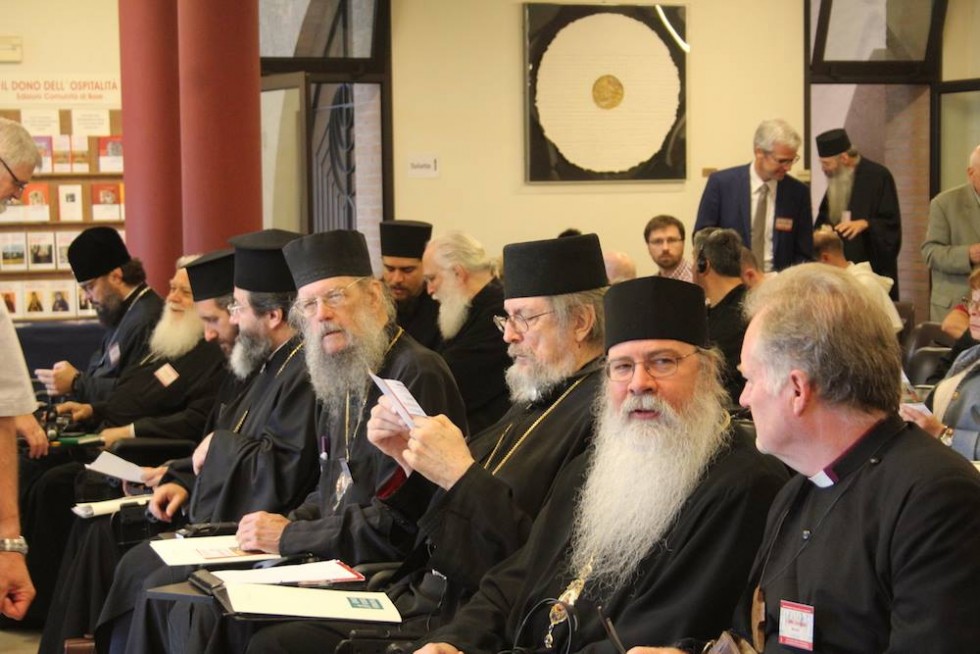
At the conference's plenary session, Ecumenical Patriarch Bartholomew presented a paper entitled “Man – Both Guest and Host on Earth”, in which he noted that the theme of hospitality “concerns everyone of good will, insofar as the discussion of hospitality has become most uncomfortable in our modern world.”
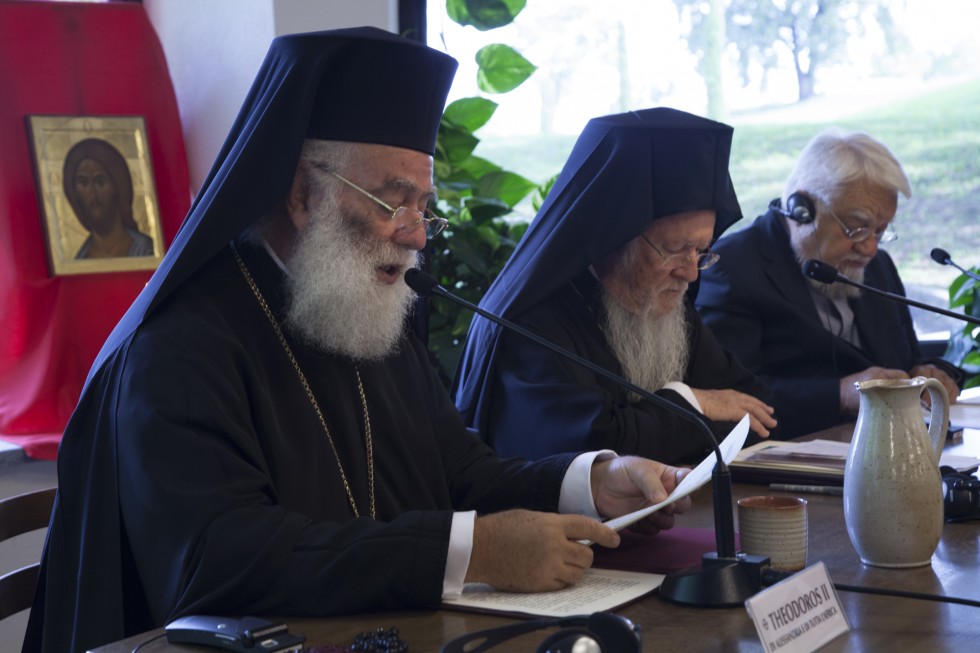
The Patriarch of Alexandria and all Africa, Theodore II; Patriarch Bartholomew of Constantinople; Founder of Bose, Enzo Bianchi
“The African is the stranger of our era,” said the Patriarch of Alexandria and all Africa, Theodore II, continuing the discussion with his own paper. “Europe is losing its mind because of immigrants, while in Africa, due to the large number of wars – both wars between countries and civil wars – and because of various catastrophes of biblical proportion, people have long been living as refugees in their own lands. Our monasteries – for instance the Monastery of St. George in old Cairo – receive these people. Far from all of them are Christians; there are many Muslims. But we remember that we are all equal in terms of the rights to life, work and freedom, and for this reason we must relate with mercy to the victims of discrimination.”
The Archbishop of Tirana and all Albania, Anastasios, spoke about the understanding of “neighbor” in both the Old and New Testaments, as the focus of his talk. “Jesus Christ, in his parable of the Good Samaritan, moves things forward and overcomes the ancient Old Testament understanding, suggesting that instead of asking the question, ‘who is my neighbor?’ we should ask the question ‘to whom am I a neighbor?’ Christ is calling us ourselves to be neighbors to others.”
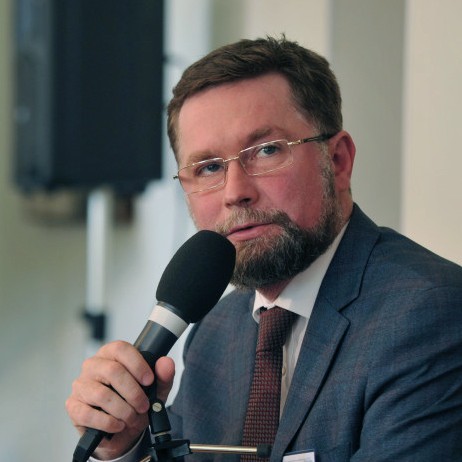
Dmitry Gasak,
Vice Rector of SFI
The 25th Annual International Symposium in Bose has, this year, brought us together to discuss the question of hospitality. As ever, the organizing committee has chosen a topic which is critical for our contemporary society and requires us to mine the depths of both Eastern and Western Christianity in search of our responses. Of course, the consideration of hospitality is called forth by modern issues of mass migration and the accompanying social upheaval in various regions. There is practically not a church in existence that hasn’t come up against this call to action in our day. I think it is incredibly important that Christians of different confessions continue to search for general approaches to the solution to this problem, which arises because of clashes between nations, between religions, and between those of differing political and economic opinions. Do we have an obligation to receive every refugee, every guest worker and every migrant? Should there be a limit to our hospitality? To what extent are Christians able or even obliged to endeavor to influence of the decisions of those in power? The search for answers to these questions forces us to think about Christians’ responsibility not only for the present, but also for the past and for the future. In addition, these questions remind us that we Christians are “strangers and sojourners in the world”, independent entirely of our jurisdictional belonging. After all, we know well that national, political or other circumstances should never dampen our memory of the fact that in Christ there is neither Jew nor Greek, neither Ukrainian nor Russian. When we acquire Evangelical freedom in these things, this will bring true, brotherly love.
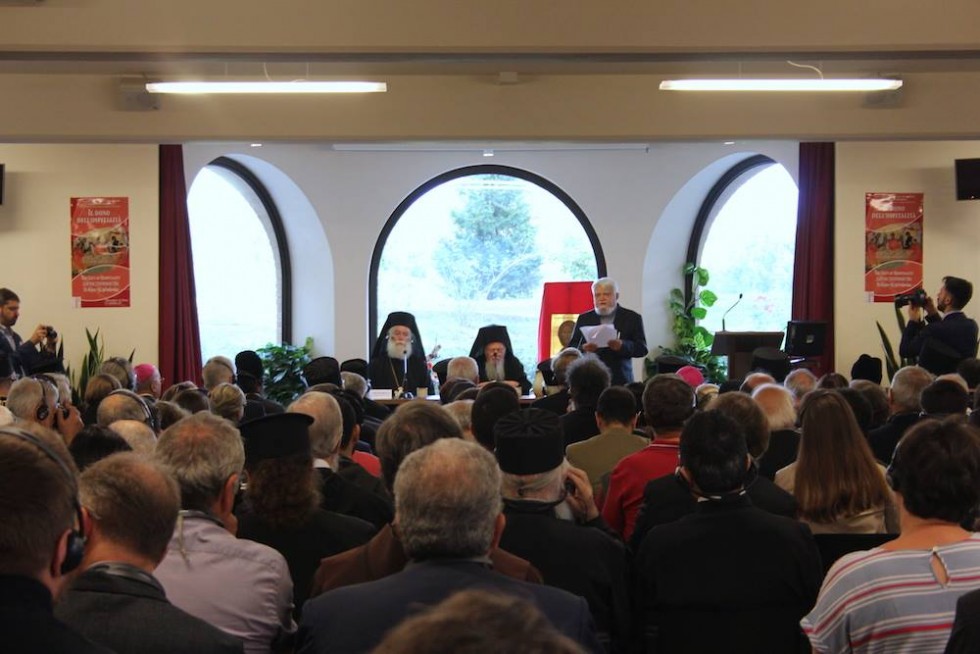
The conference continued its work until 9 Sept, 2017. Among the presented papers were: “Guests and Religious Pilgrims: the Russian Religious Wanderer under new Conditions” (Nadezhda Kizenko, University of New York, Albany); “The Holy Mystery of Hospitality: A Liturgical Understanding of Hospitality and Fellowship” (Paul Meyendorff, St. Vladimir’s Orthodox Seminary, NY, USA); “Pilgrims and Wanderers in the Russian Orthodox Tradition” (Vera Shevtsova, Smith College, Massachusetts, USA, and others.
Every year since 1993, the Monastery in Bose has hosted international ecumenical conferences dedicated to discussing topics in the Orthodox Christian tradition. One of the initiators of this conference series was Nina Kaukhchishvili (1919-2010), Professor of Slavic Studies at Bergamo University, who is now well-known in Christian circles. Before long, thanks to the interest of Metropolitan Kirill of Smolensk and Kaliningrad, her initiative was supported by the Patriarch of Moscow and, thereafter, by Patriarch Bartholomew of Constantinople.
Around 80 monks, both men and women from different Christian backgrounds, live and work at Bose. The community, which later became a monastery, was founded in 1965 by Enzo Bianchi. In its first years, the mixed nature of the community caused consternation amongst Roman Catholic hierarchs, though in 1973 the community’s founding charter was officially recognized, and the community was given canonical status in the Roman Catholic Church in 2000.
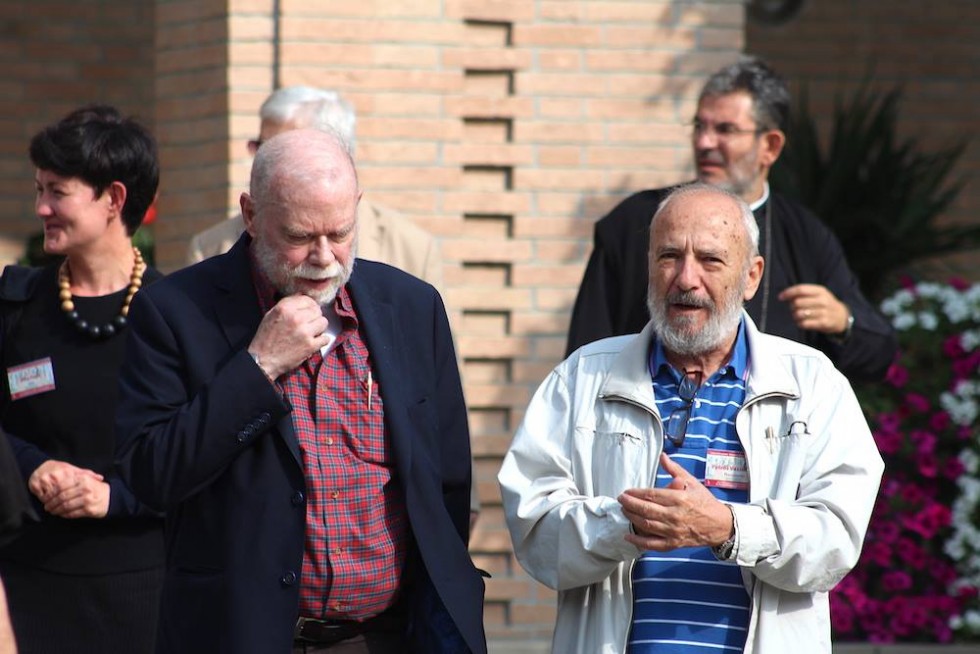
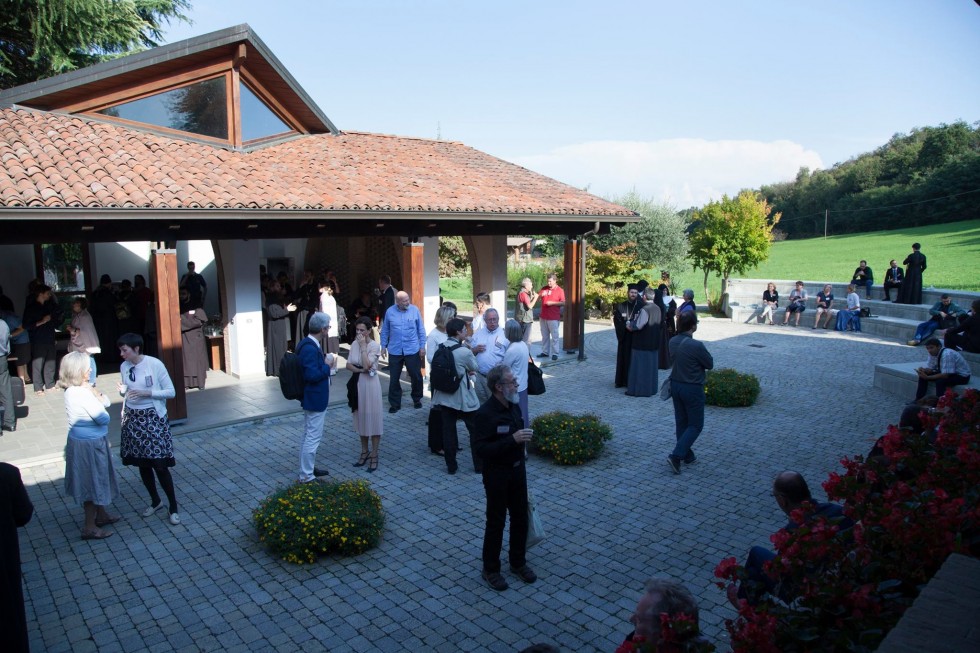
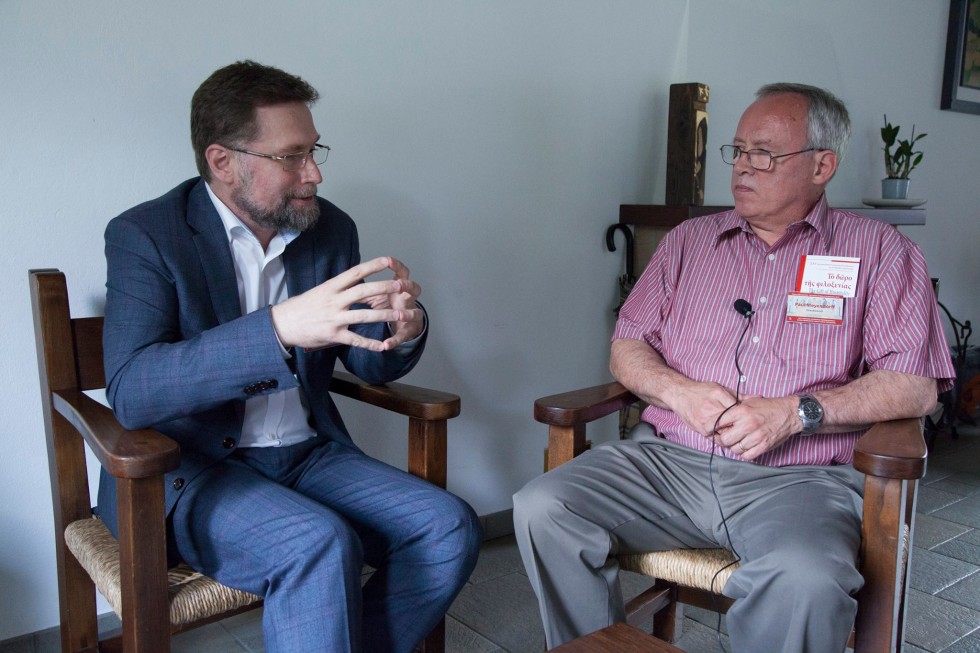
Vice Rector of SFI, Dmitry Gasak and Professor Paul Meyendorff of St. Vladimir’s Orthodox Seminary (Crestwood, NY)
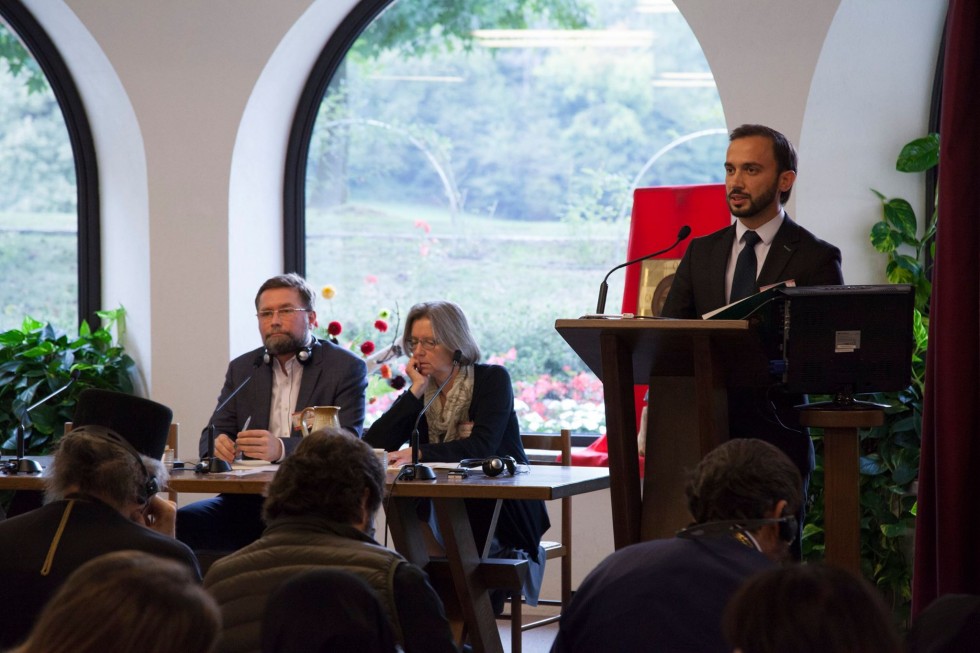
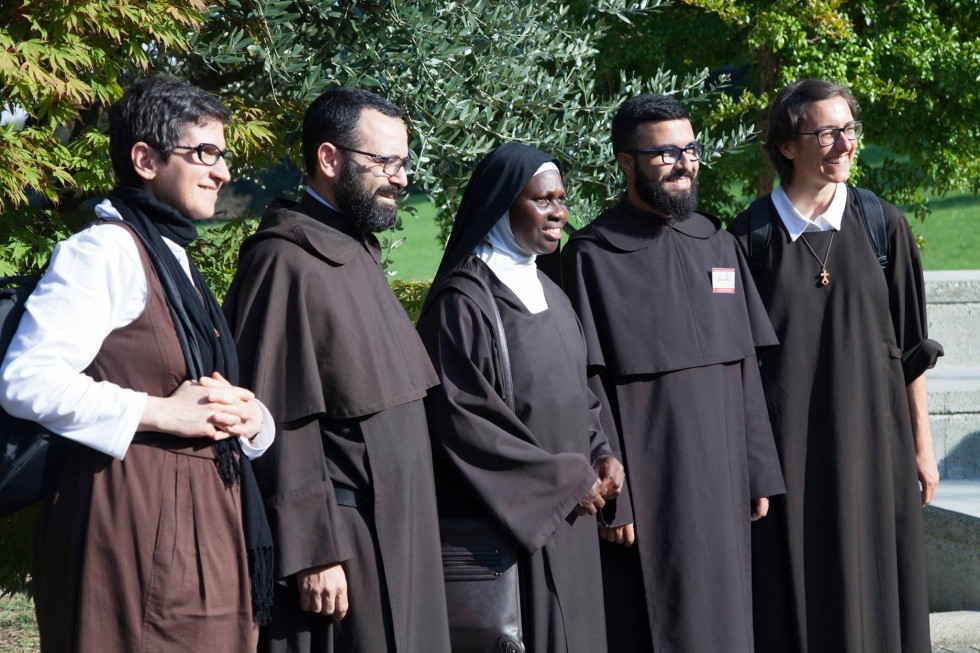
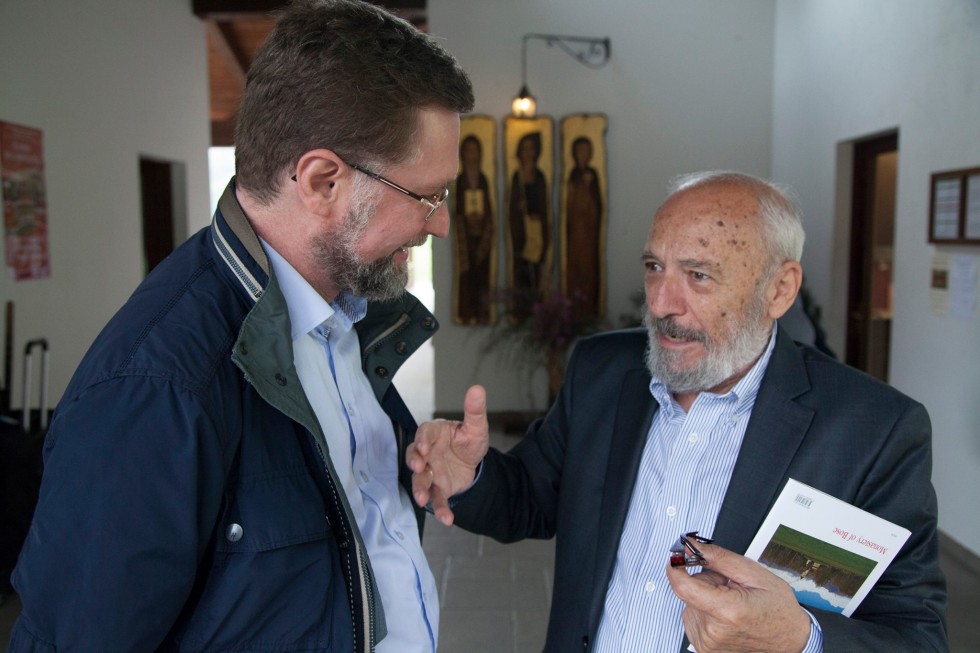
Dmitry Gasak, professor Petros Vassiliadis
